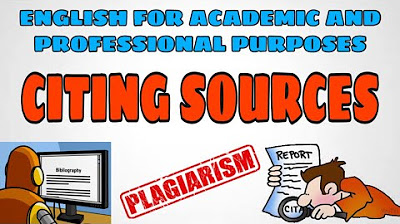Academic Honesty Lesson 1 - What is Plagiarism?
Summary
TLDRThis video introduces the concept of plagiarism, defining it as the unauthorized use of another's intellectual property without proper credit. It highlights various forms of plagiarism, including copying work, cutting and pasting from the internet, and purchasing assignments. The real-world example of Marvin Gaye's 'Blurred Lines' case illustrates the serious consequences of plagiarism. The video emphasizes the importance of originality in academic work and clarifies that collaboration is acceptable, but submitting another's work as one's own is not. Students are reminded that tools like Turnitin will check for originality, encouraging them to submit authentic work.
Takeaways
- 😀 Plagiarism is using another author's intellectual property without giving proper credit.
- 📚 Plagiarism can occur in various forms, including copying work, cutting and pasting from the internet, and failing to cite sources.
- 🎤 A real-world example of plagiarism is the case between Marvin Gaye's family and the creators of 'Blurred Lines,' highlighting its serious consequences.
- 💸 While academic plagiarism might not cost millions, it can lead to severe penalties such as failing grades or expulsion.
- 👩🏫 Collaboration is acceptable in group work, but submitting copied work from peers as your own is considered plagiarism.
- ❌ Academic dishonesty includes actions like sharing answers during tests or falsely claiming illness to avoid exams.
- 💡 You can discuss coursework and share resources with classmates outside of assignments and tests.
- 📝 Turnitin software is commonly used to check for plagiarism in submitted assignments, allowing students to see originality percentages.
- 🔍 It’s essential to paraphrase and properly credit sources to avoid plagiarism before submitting work.
- 📖 Understanding plagiarism is crucial for academic integrity and success in your studies.
Q & A
What is plagiarism?
-Plagiarism is the act of using another author's intellectual property—such as their language, visuals, or ideas—in your writing without giving proper credit.
Why is it important to avoid plagiarism in college?
-Avoiding plagiarism is crucial because it helps maintain academic integrity, allows for genuine learning, and prevents serious consequences like failing assignments or expulsion.
Can plagiarism occur in math and science courses?
-Yes, plagiarism can occur in any subject, including math and science, not just in humanities courses.
What are some common forms of plagiarism?
-Common forms of plagiarism include copying someone else's work, cutting and pasting from the internet without citation, failing to attribute sources correctly, and submitting purchased work as your own.
How does the case of Marvin Gaye relate to plagiarism?
-The case illustrates plagiarism in a real-world context, where Marvin Gaye's family sued for copyright infringement over the song 'Blurred Lines,' highlighting the serious financial and legal repercussions of plagiarism.
What are the potential consequences of getting caught plagiarizing in college?
-Consequences can include receiving a zero on an assignment, being denied access to specific programs, or even expulsion from the college.
What distinguishes collaboration from plagiarism?
-Collaboration involves working together and sharing ideas, which is acceptable, whereas plagiarism involves submitting someone else's work as your own, which is not allowed.
What is academic dishonesty?
-Academic dishonesty includes actions such as sharing answers during tests, discussing test items when not allowed, or misrepresenting the truth to avoid assignments.
How does Turnitin help prevent plagiarism?
-Turnitin checks submitted work against a database of sources to identify potential plagiarism, providing a percentage that indicates how much of the work is original, helping students correct it before submission.
What should students remember about submitting their work?
-Students should ensure that their submitted work is original and reflects their own knowledge and skills, properly citing any sources they use to avoid plagiarism.
Outlines

This section is available to paid users only. Please upgrade to access this part.
Upgrade NowMindmap

This section is available to paid users only. Please upgrade to access this part.
Upgrade NowKeywords

This section is available to paid users only. Please upgrade to access this part.
Upgrade NowHighlights

This section is available to paid users only. Please upgrade to access this part.
Upgrade NowTranscripts

This section is available to paid users only. Please upgrade to access this part.
Upgrade NowBrowse More Related Video
5.0 / 5 (0 votes)





